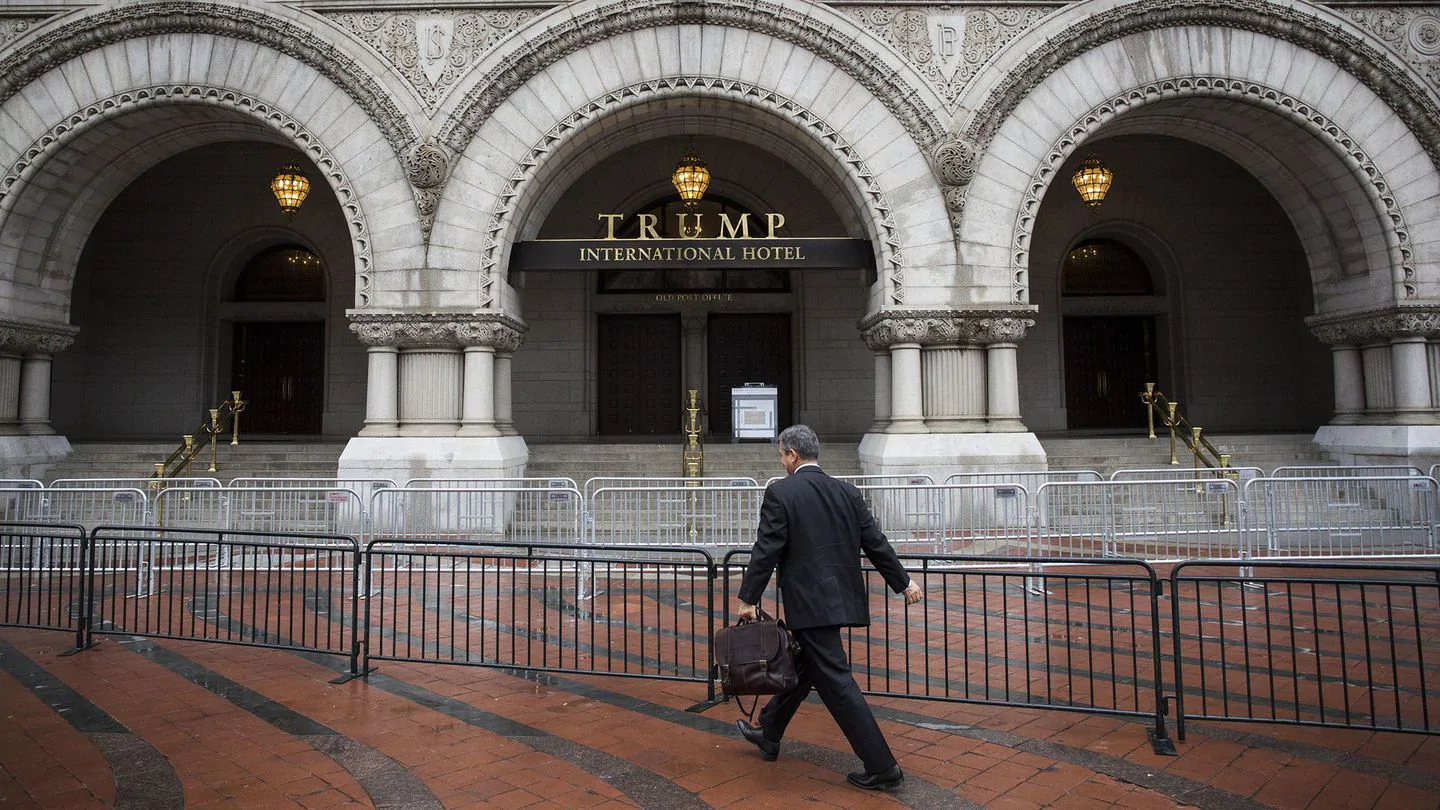Trump’s Washington hotel has been a center of controversy since he entered office. Trump continues to own his business, which operates properties including the hotel, leading to charges of conflict of interest. Several lawsuits have alleged that Trump is violating the Constitution’s ban on “emoluments,” or payments by foreign governments, when foreign government officials visit the hotel.
The company leases the building, the Old Post Office Pavilion, from the federal government’s General Services Administration (GSA), but the terms allow for the sale of the lease under certain conditions.
The Trump Organization did not immediately respond to requests for comment. The Wall Street Journal first reported the possible sale. Trump’s son Eric Trump told the newspaper, “People are objecting to us making so much money on the hotel, and therefore we may be willing to sell.”
President Trump recently referred to the issue of whether foreign spending at the hotel violates the Constitution as “the phony emoluments clause.” His statement was part of a discussion about his decision to hold the 2020 Group of Seven summit of world leaders at his Trump National Doral Miami golf resort in Florida. Days after announcing that plan, the White House reversed course, after criticism from across the political spectrum.
Opening weeks before Trump won the 2016 election, the hotel has become a popular place for customers and clients aligned with the president’s politics and a go-to place for Republican campaigns to hold fundraisers, Christian groups to hold conventions and conservative authors to host book parties. Members of Trump’s Cabinet have often been spotted there, and Trump has visited there 23 times as president, according to the watchdog group Citizens for Responsibility and Ethics in Washington.
But the property has also suffered from the unwillingness of many mainstream corporations, embassies and associations to book business there, narrowing the pool of candidates to fill the hotel’s massive ballroom and its 263 guest rooms.
The hotel’s dealings with foreign governments have led to multiple lawsuits, congressional inquiries and investigations. In three lawsuits winding their way through the federal court system, plaintiffs argue that Trump is violating the emoluments clause of the Constitution, which bars the president from accepting gifts or payments from foreign governments.
Plaintiffs in the cases repeatedly cite instances in which government officials — from Kuwait, Saudi Arabia, Malaysia and other nations — have booked business at the hotel. The judge in one case, in which the D.C. and Maryland attorneys general sued the president, narrowed the arguments strictly to Trump’s D.C. hotel.
Justice Department attorneys have argued in court that the president cannot be charged with a crime while in office and that the president does not violate the Constitution by charging market rates to foreign governments. The Trump Organization has also donated money to the U.S. treasury each of the past two years, money it says equates to the amount of profits it has received from foreign governments and political leaders.
House Democrats have recently gotten more aggressive about looking into the hotel project. The House committee that oversees the GSA issued a subpoena Thursday to the agency for financial records, legal memos and correspondence related to the project, including material relating to any communications between the GSA and President Trump, Donald Trump Jr., Ivanka Trump or Eric Trump.
A report earlier this year from the GSA’s inspector general said the agency “improperly” ignored constitutional concerns in managing the project.
A GSA spokeswoman did not immediately respond to a request for comment. Agency officials have said in the past that they have provided thousands of documents to the committee and that it is up to the courts to determine whether any emoluments violations have taken place.
Trump signed the lease in 2013, two years before running for president. When the GSA offered the building to the private sector, a who’s-who of top developers and hotel brands pursued the deal. Ten bidders submitted proposals, including bids from Hilton, Park Hyatt and Montage Hotels & Resorts. The Trump Organization beat them out largely by offering to spend $200 million to renovate the building — far more than some other bidders were willing to offer.
Ivanka Trump, then an executive at her father’s real estate company and now a senior adviser to him in the White House, so coveted the building that she suggested to GSA officials that her daughter, Arabella Rose, then not yet five months old, would one day oversee it.













